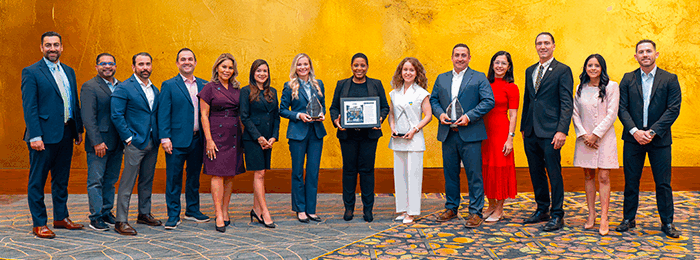
I used to cringe at the term “executive coach.” It conjured up images of retired corporate types, former athletes, academics and consultants who claim to help executives improve their performance in many areas. How could anyone without any financial crime compliance background truly understand me and my situation enough to help me? Five years ago, after a particularly difficult period in my career, I learned exactly how.
In late 2015, I was hired by a tier 1 global bank for what many believe is one of the toughest regional roles in our industry—the role of Asia-Pacific financial crime compliance head. From day one, I was at a disadvantage. I had to rebuild a team that had suffered more than 40% attrition while managing regulatory exams and overseeing a financial crime program that was in the midst of a significant change. This was all while tackling the daily challenges of helping manage the financial crime risk of a regional franchise that was making close to a billion dollars in annual revenue.
With the help of a great team and some luck, I made it through the first year. But what people around me did not know was how close I was to burning out that first year. I was, as the saying goes, burning the candle from both ends, and it was not lost on me that I could have readily made crucial mistakes and missteps at work that could have had significant repercussions for my company, my team and my career.
“Don’t be ashamed to need help. Like a soldier storming a wall, you have a mission to accomplish. And if you’ve been wounded and you need a comrade to pull you up? So what?” –Marcus Aurelius, Roman emperor and Stoic philosopher
That was my wakeup call. I learned my lesson and hired an executive coach, which made a world of difference. Since then, I realized how much simpler it is to succeed in any endeavor with a guide. Someone who helps you with your weaknesses and blind spots, someone who helps you when you are stuck with a problem you have never had to face before, someone who helps you keep moving forward and stops you from self-destructing.
I believe in the life-changing and career-boosting power of coaching and mentoring because I experienced it myself. Over the past five years, I have personally invested hundreds of hours and substantial financial resources in receiving world-class coaching and mentoring in one-on-one and group mastermind settings.
“Best Advice I Ever Got: Hire a Coach”–Eric Schmidt, Former Chairman and CEO of Google
What do successful corporate executives, professional athletes and Luke Skywalker all have in common? They have guides who give them advice in real time, who encourage, challenge and motivate them, and who kick their butts and help them course-correct when needed. They are all smart enough to know they need help and cannot do it on their own. So, who exactly are these guides and what do they do?
The Coach
Much like in sports, a coach is usually someone who has the skills, knowledge and proven experience in providing guidance, strategies and tactics when it comes to mindset and motivation. Olympians and other world-class athletes have them and successful executives have them too.
Coaching is no longer a rarity. It is increasingly recognized as an essential part of professional and personal development. I am willing to bet that members of your company’s senior executive team who have coaches would agree. It is a critical factor in what makes them effective as executives.
The Mentor
Mentors are recognized and respected experts in your field. These are people who have already travelled the road that you wish to navigate. They know your joys and struggles because they have tasted your victories and your defeats. They truly understand and appreciate your world. A great movie example of this is the character Haymitch Abernathy in The Hunger Games. He is someone who has completed the journey that Katniss Everdeen is embarking on and now he is her guide, sharing the benefits of wisdom and insight he has collected along the way. He has made mistakes, but through those lived experiences, he can now help Katniss avoid similar pitfalls. He has tried, failed and discovered what does not work and what does. Now, Katniss can skip all the detours, avoid the traps and expedite her journey to win the competition for District 12.
What makes for a good mentor? A good mentor will tell you what worked in his/her career, but he/she will not insist that you do it his way. A good mentor guides you to a new and better approach when thinking about your problem or situation. A good mentor who offers excellent advice understands that their goal is to help you on your unique journey.
The Combined Coach and Mentor
Some professionals offer both coaching and mentoring at the same time. At the risk of oversimplifying, the mentoring side of their service will help you correctly set up your goals and strategy while the coaching side will help you achieve them. This combined approach is hugely beneficial if you find the right person who is qualified and experienced on both fronts.
Choosing the Right Guide for Your Journey
First, pick three people with skills you need, experience you lack, relationships you can leverage and perspectives you can trust. These tend to be the leaders, innovators and talented people in their field. My first executive coach was experienced in spirituality and holistic health, which helped me become centred and strong after my brush with burnout. Next, I got a coach who worked with many C-suite executives and helped with mindset and motivation. Presently, I have a business coach helping me navigate the world of start-up businesses.
Second, assess which of these guides can be trusted to give you good advice and sound information when you need it. Real-time guidance is a game changer. Saving all the questions for your monthly catch-up with your coach is not as effective as getting situational advice when you need it most. Mentors are harder still. Unless you have a paid mentorship arrangement, it is not easy to get hold of these busy executives for real-time advice.
Lastly, pick a guide who is willing to ask you tough questions and someone you are willing to be unconditionally open to about the truth. There is a place for cheerleading, and that is helpful at times, but what creates lasting change are uncomfortable conversations that get into the heart of your fears and insecurities. Therefore, for the relationship to work, both you and your guide need to have an earnest desire to be honest, learn, grow and be open to new directions.
Having a coach, mentor and/or guide is fulfilling and worthwhile. They did far more than help me get ahead in my career. They helped me create a blueprint, a map for how to navigate my life more generally. They helped me in real time through difficult situations that I would have otherwise been utterly incapable of navigating successfully on my own. They helped forge me into the person, the professional, the leader that I am today.










